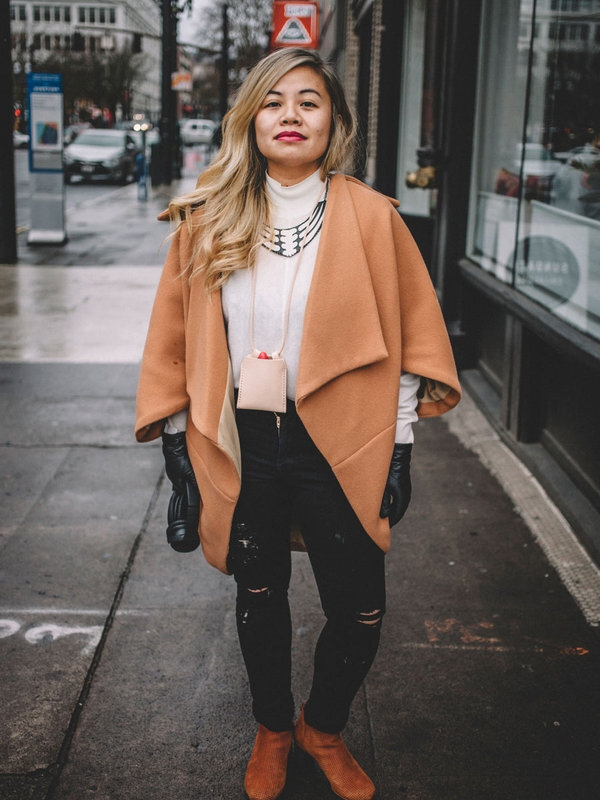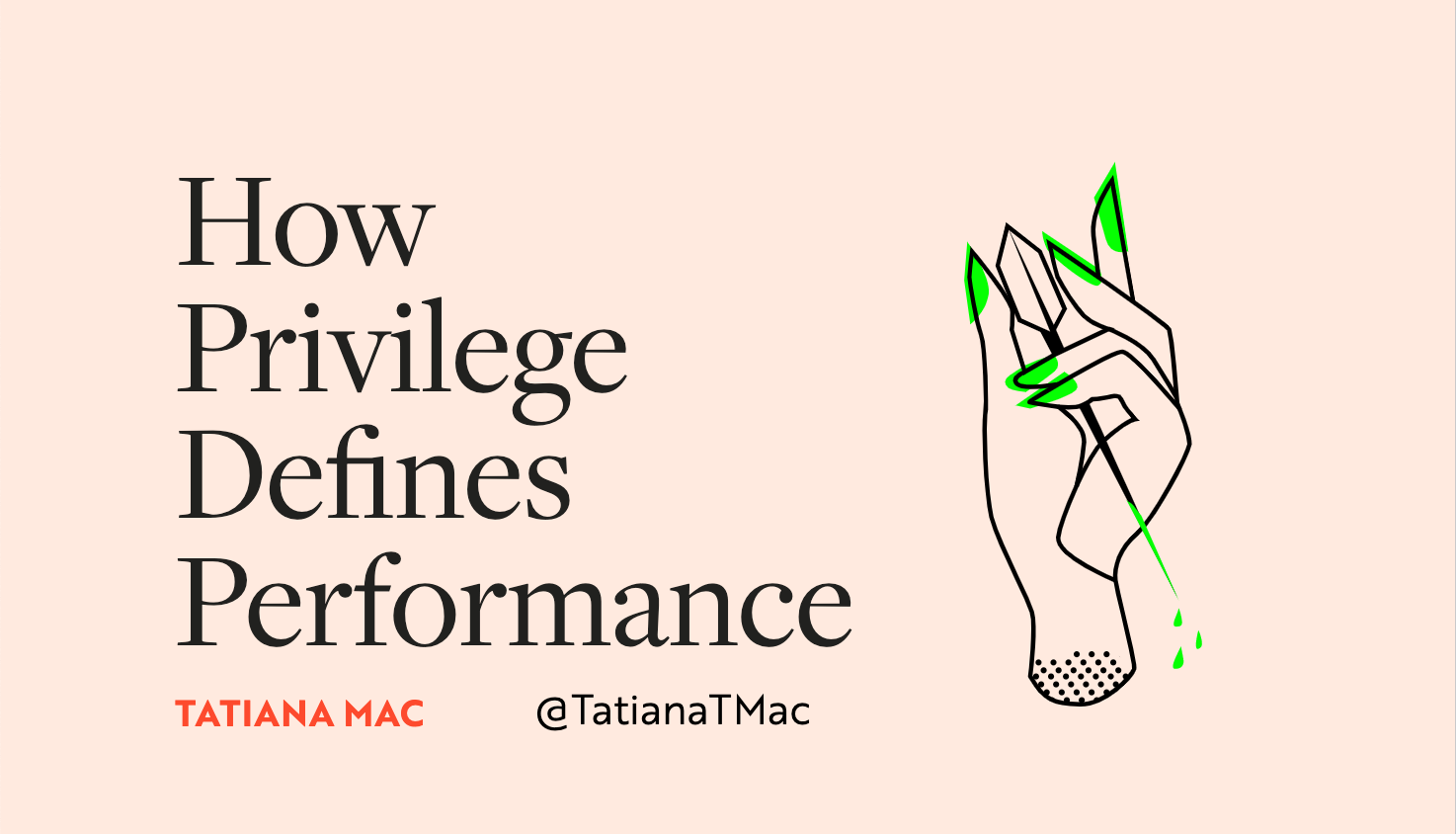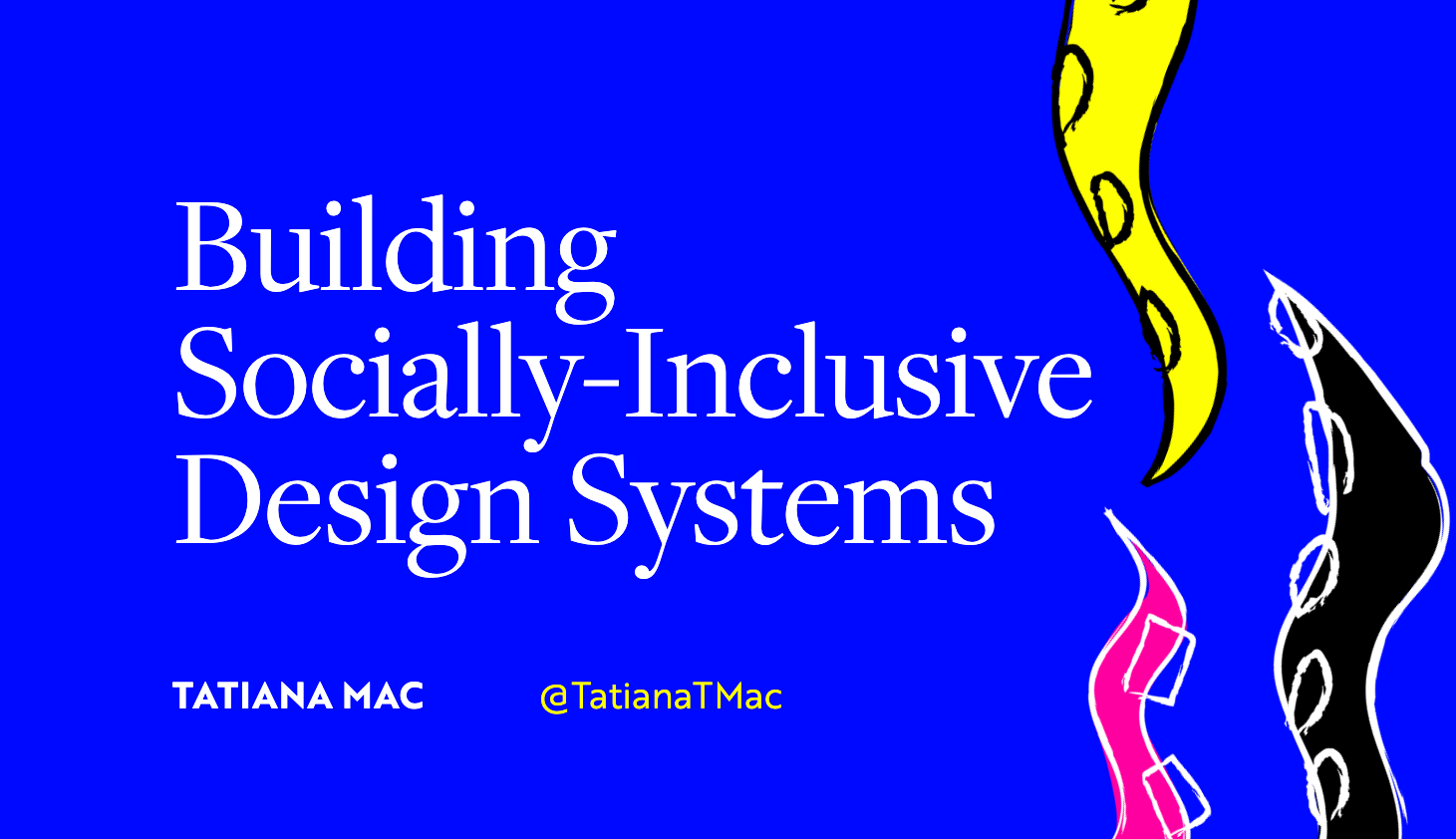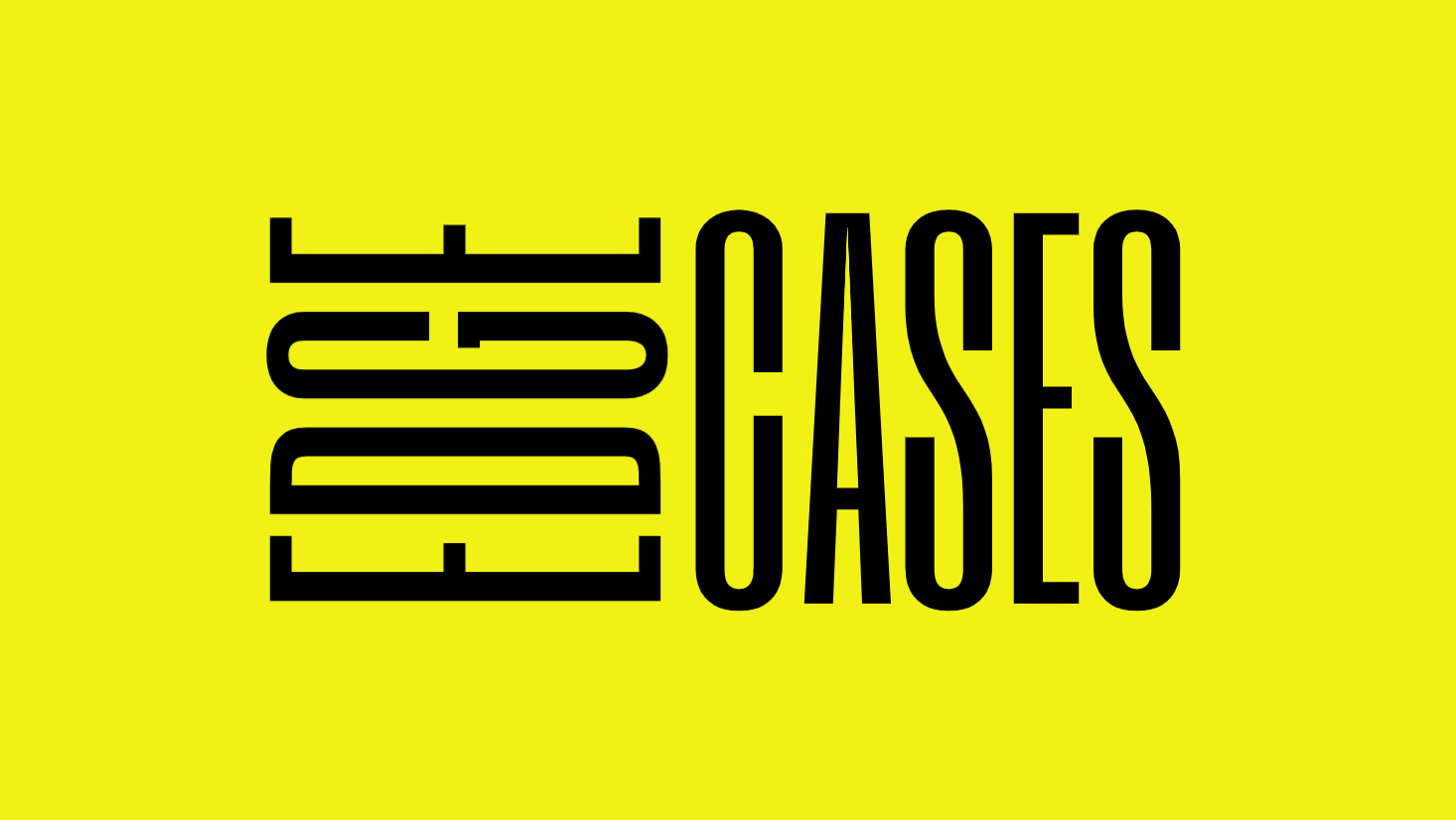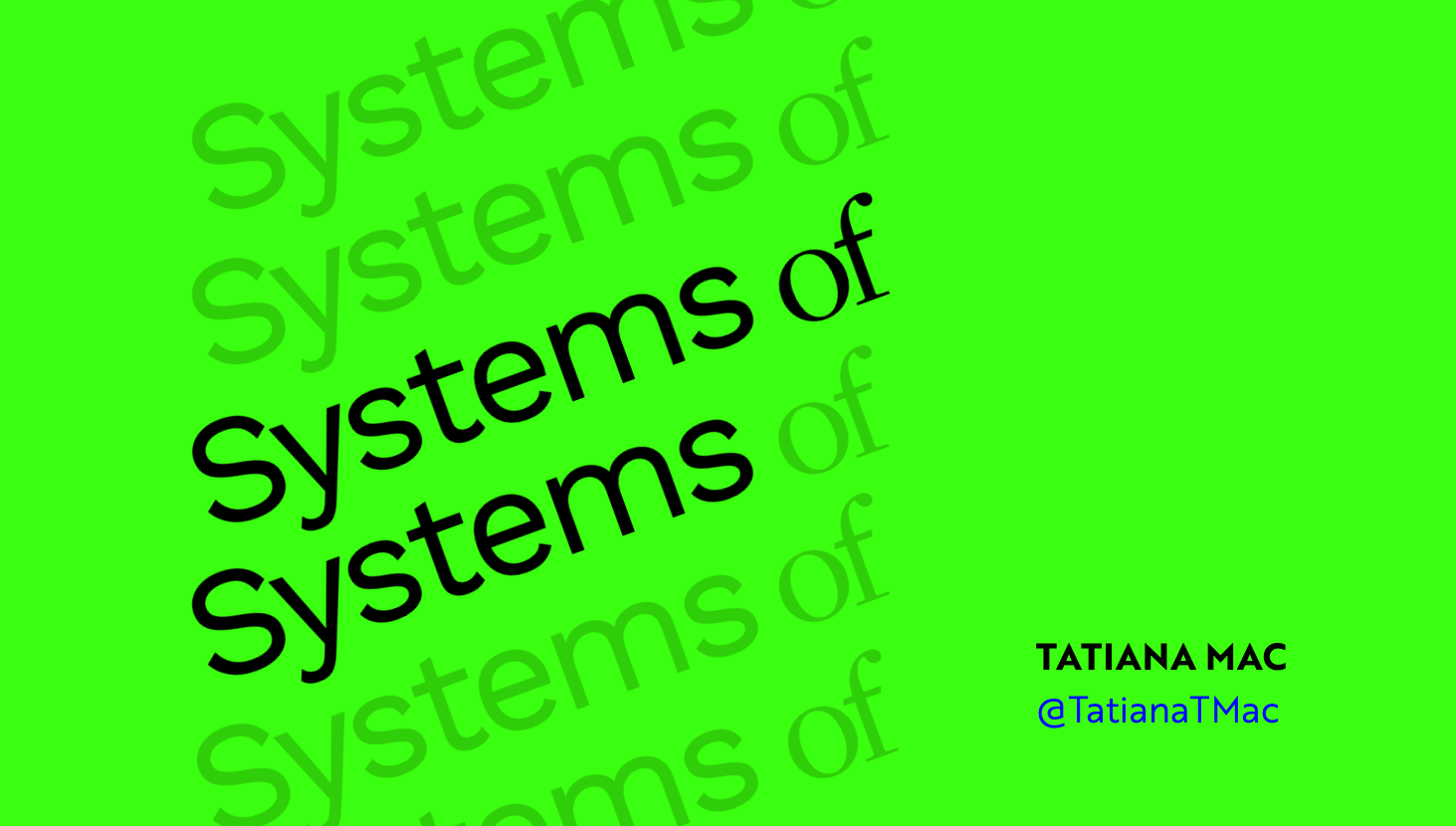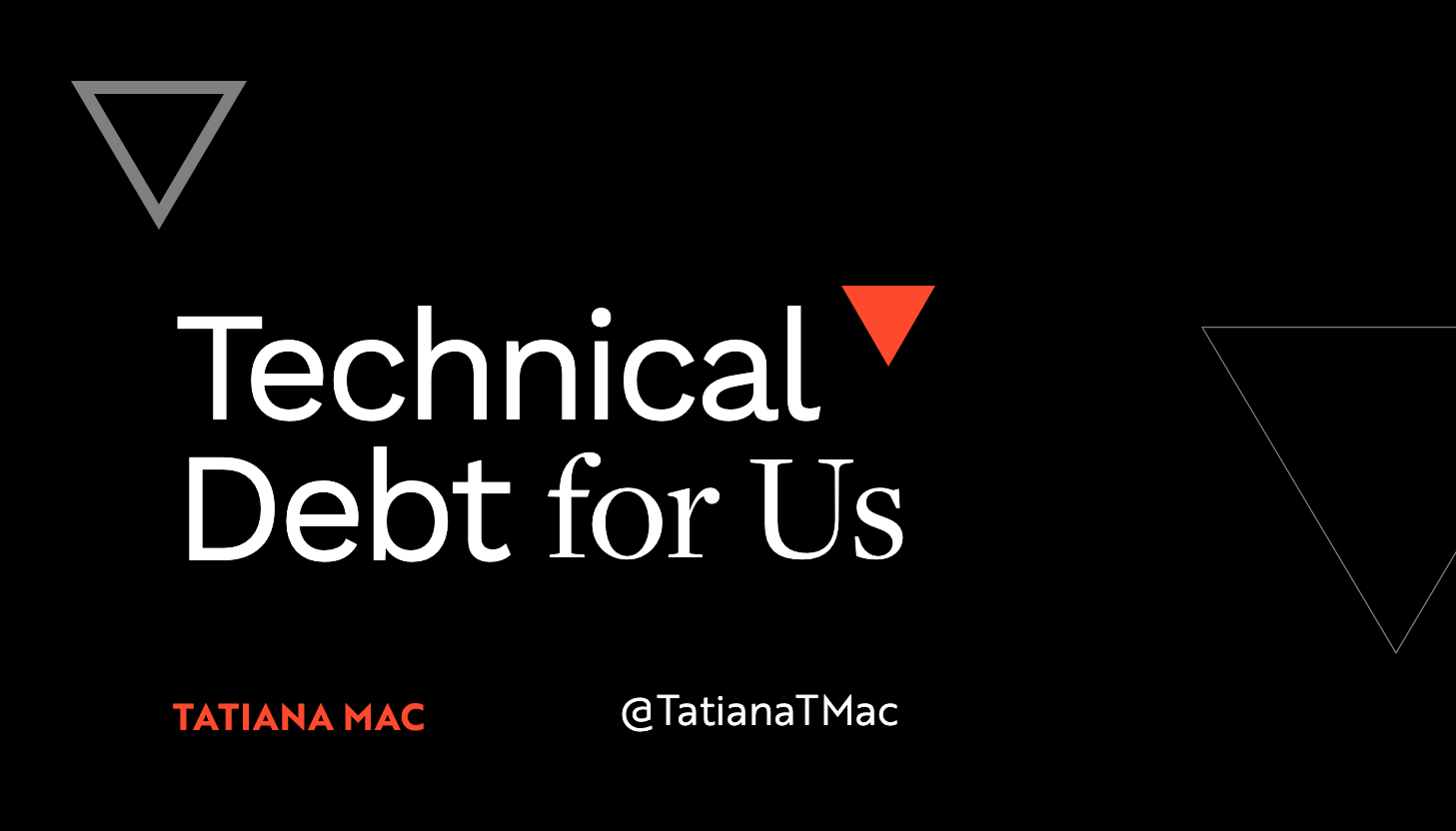Visible Conversations: Tatiana Mac
Tatiana Mac is an American designer who builds inclusive, accessible, and ethical products with thoughtful practices. Tatiana serves as Acessibility Advisor on the Visible Advisory Committee.
A conversation with the Visible HQ Team
Tatiana: So, I think I’d actually like to start with the wild-card question…the three things that happened in my life that led to where I am or made me who I am…
Liz: Go for it!
Tatiana: So, the first one is that I am a first generation Vietnamese-American designer and I think that that contributed to my life in a really major way…I have always been between two truths or two cultures. Growing up with Vietnamese parents that immigrated here, I always had that culture as an underlying foundation for a lot of things. I was educated in that culture, but separated from a community of that culture, so I had this isolated little pocket in my world, which was my immediate family, my parents—I’m an only child. It wasn’t until I left that world substantially, when I went to school, that I started to become immersed in American culture, really. I think the idea of always being torn or caught between, or not necessarily wholly represented by either culture is what allows me as a designer to be the one in the room that is often saying, well, both of these things can be true, or that things are a spectrum. I think it makes me really able to live in ambiguity and in the gray area a lot more comfortably, because that’s kind of been the foundation of my entire existence.
Liz: That makes total sense. It gives you that kind of hermetic capability of communicating with multiple worlds–
“You never know what one thing you say will really change the way someone sees themselves.”
Tatiana: Yeah, and I think that’s really hard for folks that grow up in a family that represents the culture of their community—when what they see in their community is just a macrocosm for what they experience at home. That was very much so not my experience, so I think that I am very comfortable with understanding that internal and external truths are somewhat separate and that I can flow into that. It really helps with my UX design skills. I can see how an individual might be interacting with something and if they haven’t been forced to do a lot of internal work and reflect a lot, they might tell you that something frustrates them, but you might observe something differently, so it’s kind of a weird trait of growing up that way.
And then one other thing that influenced me tremendously was that my eighth grade teacher, Tanya Boss, told me to never stop letting the world know how smart I am. It’s something that’s always stuck with me, and it’s really amazing how profound an influence teachers have on students for better or for worse. I think about the immense pressure of that, that a simple statement can really stick with a student. I mean, that happened over twenty years ago and I still think about that almost every day—that there was someone in the world that believed in me and that she felt like I deserved to share my perspective, and it always reminds me of the power of positive affirmations for people. You never know what one thing you say will really change the way someone sees themselves.
Liz: So true. It could be an offhand remark that you make that sticks with someone forever.
Tatiana: Yeah! And I don’t know if she remembers making that comment. It’s interesting—it has such a profound impact on my life, but it could have just been her being a good teacher and encouraging all the students. That sticks with me every day. In intimidating board rooms or especially with being heavily marginalized in the tech industry, it can be really easy to get down on myself, and I just have that little voice of hers in the back of my head that’s like, No, you are allowed to let this room know how smart that you are. Even though society might tell you that you’re not allowed to, you are. That definitely influences my life a lot.
And then, the third thing that happened in my life is kind of a weird one, and I talk about this story a lot—last July, I wrote this Twitter thread about microaggressions in Portland, and how these three microaggressions that happened in one day illustrate a greater challenge of being a marginalized individual, specifically for me, a woman of color in Portland, and the Twitter thread blew up. It was retweeted like five thousand times and it put me in this spotlight that I didn’t think I was necessarily ready to be in, which was as an expert of race theory. And so, a lot of the unpacking that I was doing at that time as a result was very new to me, and it was really overwhelming to have both the simultaneous hate and trolling from so many people, and then also so many folks of color saying wow, you managed to articulate something I’ve been experienced my entire life and have never been able to articulate. I feel like that event really catapulted me to a place, at least in the internet society or internet world, that is still impacting my work today. I’m doing a lot more speaking about inclusion in tech and what does that really mean, and being critical of the systemic oppression that we experience. It definitely made me a lot more confident about speaking out about these issues and a lot more self-aware of how, again, whatever you put out into the world has profound impact and not always in the ways that you expect or are ready for.
Liz: That is amazing. It feels like there are many, many people that would feel uncomfortable making themselves an authority on that topic, and so the fact that you were able to get sort of organic feedback from multiple communities that you were representing is really beautiful.
Kristin: And that those communities just made you an authority…
Liz: They queened you, without you asking for it…
(laughs)
Tatiana: I did feel a bit like Katniss from Hunger Games. I was like, I volunteer as tribute…oh my god, what did I do! (laughing)
Liz: Ok, next question on the list! What was it that inspired to you to go beyond being a UX designer and share your skills in a public forum. In other words, what inspired you to go from designer to teacher, and what did this transition look like for you?
Tatiana: I think I’ve always latently known that being a designer can be a really impactful career. I genuinely believe that I’m one of those lucky people that knows that no matter what I do in my entire life, the roles that I play will always be tethered back to being a designer in some capacity. And so, this natural progression from being a designer and looking at things in the public is, I think, very indicative of the fact that design requires us to look at all aspects and constraints and contexts for what we’re solving for.
When I started to see that world is controlled by systems that were created by a small subset of the world—a subset that historically retains a lot of power, and historically is very self-interested, and historically is not concerned with exploitation of resources at the environmental or human level—I started to realize that everything we design is going to be controlled by that system. And until we understand the complexity of that system, and we understand the inherent power dynamic involved in these relationships, we’re never going to really be able to successfully design system.
“We glorify the beginning because it’s exciting, and we glorify finishing, but it’s really the middle where a lot of really important conversations happen.”
I think we’re starting to see the complete degradation of this in tech. We’re seeing this in Facebook and Twitter and various social platforms…they start to fall apart from so many sides because when they were created, they weren’t created with the intent to create safer spaces. They were created for and by white, rich, cis, hetero men, and American men specifically, a lot of the time. I think that that’s why I feel so passionately about sharing the knowledge that I’ve gained in connecting the systems we build within design to the systems that were built outside of design.
In terms of teaching, I think a lot about this topic. I listen to Scott Belsky a lot—he used to do a ton of work for Adobe and now he’s a design venture capitalist, and kind of lives a dreamboaty life in my opinion.
He did a talk at 99U about product design, and two of the big errors that I gathered from him are that we don’t spend enough time in the middle, kind of getting into the meat of things. We glorify the beginning because it’s exciting, and we glorify finishing, but it’s really the middle where a lot of really important conversations happen.
The other thing he talked about is in our products, we have a tendency to optimize for our power users. We’re always trying to create fancier and more elaborate features, while in general, humans gravitate towards singular things. I remember when Instagram was so awesome because it was just that you had to take a photo in that moment, and there weren’t all these videos and collections. There wasn’t Instagram Live, and all these things that they’ve tacked on. It used to just be a singular purpose platform, and I think that, in terms of the power user, that’s what we do in the design community as well.
I work in the accessibility community, and we have a tendency to fixate on these hyper-complex examples, but where we’d have the most impact, as a community, is if we focused more on getting everyone to a better base/beginner level. That’s why I feel so passionately about teaching—the more people we can teach a few things, whether it be about gender pronouns, or about sexual orientation, or about disability or race, we’ll get the world a lot farther along than if we just fixate on teaching a few scholars.
Liz: That’s a really good point.
Kristin: Yeah. We were watching your talk on privilege—I think we’ve watched it in a different degrees, in a few different ways, a few different times (laughs), but when you were talking about your teacher who made an impact on you, I was thinking, I bet Tatiana does that all the time in her talks—where a little seed sticks with someone and really changes their direction. When you said “Empathy is a scam,” I was like gah…she’s right!
Tatiana: Haha! When I initially wrote that talk, I didn’t think that idea was that controversial or exciting, but when I hear people react back to me like that, I think it’s because we think of empathy as so inherently positive. Like, I think if I walked down the street Jay Leno-style and I was like “Hey, do you think empathy is a good thing or a bad thing?” …most people would be like, “Good!” I don’t think anyone would be like, “Empathy is terrible.” So I did kind of do a little bit of click baiting there.
Kristin: This is a bit of tangent, but would you mind talking a little bit about that sentiment, and what that was based in for you?
Tatiana: Yeah, so a long time ago, there was this video that I think still gets circulated around, and it really resonated with me, that showed the difference between empathy and sympathy. The genesis of it is basically in empathy, someone is in a hole, and you crawl down and sit in the hole with them. And in sympathy, you’re standing from outside of the hole and you're looking in. At the time, it stuck with me because I was like, oh, empathy’s so much better. Why would you stand outside of the hole instead of going down and helping them, or sitting with them and being with them.
But now, I have a completely different perspective in that when I read the definition of empathy, it says that it’s the ability to feel what the other person is feeling from where they stand from, from where their perspective is. Well, that’s impossible to do because everything in my life dictates my point of view on it. Two people can say the exact same thing to us, and we could have two totally different reactions. We could think it’s a compliment, or we could think it’s an insult.
I think the ability to empathize is a huge concern because it’s effectively saying that, in order to really work with one another or to be a good designer, you have to be able to get into the shoes of every user—and that’s completely impossible. And it does something else, which is it centers that things only matter when we’re able to feel them. What if I can’t empathize with someone? And what if I recognize that? So then do that person’s feelings then become invalid because I can’t feel them?
That’s where the danger is, and that’s why I always end with that we need to replace empathy with trust. When someone says they feel a certain way or when someone experiences something, we might never experience that with the nature of things we’re born with—the color of our skin, our gender—so we just have to trust that their experience is valid, and what they feel is real.
“We need to replace empathy with trust.”
Liz: You just have to respect it.
Kristin: Thanks so much for the background share on that. It’s such a mind shift moment.
Tatiana: I think about it a lot with the #MeToo Movement. That there’s so much fixation on, well, what if we falsely accuse someone? And it’s like there’s no trust in it. When the trust is implicitly and squarely placed in the accused abuser. How do we build empathy when we have an inherent trust in the abuser? It gets really complex, but I always think about sexual assault when we think about empathy. Because for someone who has never been sexually assaulted and statistically won’t be, how do they create empathy? How would they ever create empathy for that horrible experience?
Liz: Yeah, and there’s a certain amount of ego involved in thinking that you could imagine what it’s like to be another person…
Tatiana: Yes! That’s a really good point. Empathy does require a certain level of ego.
Liz: That “I know what it means to be you…” It’s like, no you don’t.
Tatiana: Yes.
(pause)
Liz: Next question? (laughs) You’re already blowing our minds…So, when people come to you for your expertise or to schedule a workshop, what are they usually wanting to know or asking for, and how does that vary from what they actually need to know? What’s the difference between what people think they’re going to learn, and what they really need to be learning?
Tatiana: Ooh, that’s a really good question. I think that in design, we’re seeking solutions which means, as designers, we feel like we need to make more statements. But, I actually think that design is the process. Design is inquiry. And so a lot of the time, when I work with people, I think they’re kind of surprised. They expect that in a workshop or interactive forum that I’m going to just talk at them the whole time and give them information, but I can’t dismantle their accessibility issues or their challenges with being more inclusive to their users, if I first don’t understand the understanding they have of, again, the systemic aspects.
So, I would say that what they’re usually wanting is answers, and what I’m usually giving them back is questions.
Liz: Not giving them any short-cuts…
Tatiana: And I can’t. It goes back to that empathy thing—I don’t know their business as well as they do, and it’s very little value for me to come in arrogantly and say, here are the answers that will work for you. Instead, I have to come in, sort of blow everything up, and say, have you asked these questions of yourself and your users? And then the work is then going and asking those questions of themselves and their users.
Liz: A soundbite from you is not going to be a bandaid to their issues…
Tatiana: Sure, I can give them pro-tips on things like, yeah, make sure your design system color palette is intrinsically sufficiently color-contrasted. But that matters very little if they’re being gender exclusive. They’re going to harm somebody in a different way.
Liz: So the endpoint of that question is, what would you say is the most valuable information that your clients leave with? But, I don’t know if that question is relevant now because really, it sounds like it would be that the information is that they need to seek more information from within their organization.
Tatiana: Yes, and not to pick on you, but even in that aspect, we’re valuing information or output over process, and I think that’s what I’m hoping to teach people. It’s less about teaching them facts. I’m trying to teach more about methodology and approach, and slowing down rather than in seeking the tangible answers. Those are searchable. Especially as information and “facts” are at our fingertips, we need to dedicate less of our brain space to rote memorization and more to analyzing the methodology. It’s like the only one-up we have over computers right now.
Liz: Shoot! Now I’m questioning all of our questions! Ok, pick on this one then:
What are the three most impactful things that designers can do to dismantle exclusionary systems for a more inclusive, community-focused world?
Tatiana: I think the number one thing that designers can do is to place themselves into more situations where they are the minority—and I really hate that word, and I only use it very strategically, because I hate being called a minority. It means “very little” to me and I hate the pejorative nature of it. When I use “minority” here, I’m saying like, I met someone the other day who is a white woman, but she grew up in a predominantly black community. The way that I was able to connect with her was much different than the way that I’m able to connect with most white women, and I think it’s that she grew up in an environment where she was in a minority group. That’s something that doesn’t come easy to us.
“I think the number one thing that designers can do is to place themselves into more situations where they are the minority”
It’s very happenchance—it’s where you’re born, it’s who you're born as—we can’t help a lot of that. What we can help is surrounding ourselves with stories, narratives, of people that aren’t like us, so that’s why I always try to read people outside of the common vernacular. I try to follow people on Twitter that have way different life experiences than I do that seem scary and foreign and super unfamiliar, and I think that’s where it’s like, how can we make ourselves minorities. You’re never going to have the empathy to feel what they’re feeling, but it’s important to remember and to recenter narratives away from the ones that are constantly centered around us.
2. Inclusion in a community-focused world…Ok, I’m really bad about tangents, but there’s like this ongoing debate that I find both exhilaratingly fascinating and supremely annoying, which is about plastic straws. We all live in Portland, and we maybe all have experienced the paper straw in an iced coffee or in a cocktail, or ICEE or ice water, and the sogginess, right, after like two minutes? So, I think the straw thing has been a really fascinating design challenge that really illustrated to me how we find or solve problems before we define them a lot of the time. Like, what were we solving with the straws? I think it was a reaction to a video…there was a turtle with a plastic straw, and it was hurting the turtle, which is very, very sad. And then, the entire world rallied around (which is incredible, it felt) well, let’s get rid of all plastic straws.
You all probably saw how quickly it happened in Portland, right? There’s very few places here that have plastic straws anymore, and because I follow folks in disabled Twitter, I was reading all these things where they were going out to eat—and a lot of folks have to drink out of straws—and they were being denied straws somewhat aggressively, and being shamed for it. And then, there’s all these people coming as heroes to fix it, being like, they should just carry metal straws around. Well, metal straws can’t create the same amount of suction, they’re not bendable—there’s just so many nuances to it. But people kept presenting these solutions and not really understanding the full landscape. I think at the end of the day, all for the wrong problem, we failed to center the most marginalized people who are impacted by this, and that ultimately, the straw thing is our way of being able to almost virtue signal around whether or not we’re good environmentalists, when many of us would not be willing to give up our car or take the bus, or bring our own grocery bags all the time, or do anything substantial within in our own lives, but we’re very good about getting the world to do everything for us. And we know that when we’re getting the world to do it, we’re putting that on the most marginalized people to fall into line, and to shame them. I think designers need to always be mindful of the fact that design problems are always going to be extremely complex, and we’re always just making a concerted choice that’s going to help some people and harm others. It’s just making a value judgement a lot of the time, and adjusting as we go.
3. The last thing I would say is that I think that we all, especially designers, need to learn how to be corrected and to apologize and how to move on. A designer’s perspective is super impactful, and to have your perspective corrected in a critique or to have it questioned…I used to a lead a large design and creative team, and people really don’t like having their perspective challenged. But I think until we’re able to do that, and to see that, oh yes, my perspective on that was limited, thank you for sharing that perspective, I’m going to read more about that…that whole process is so hard for us, and we’re not very emotionally mature in that way a lot of the time. We work so hard to avoid mistakes, and we put so much pressure on avoiding them, that when a mistake happens, we want to find any way to say, oh that wasn’t a mistake or if that was a mistake, it wasn’t my fault and here’s all the reasons why it wasn’t. We shame mistakes so heavily, and then we react so poorly to them when they happen.
Liz: Whereas really, they’re the learning moments in our lives that make us better, or they should be…
Tatiana: Yes! That’s how we progress!
Liz: Those are such thoughtful answers. Thank you so much. We’ll be thinking about those three things a lot.
Tatiana: Thank you for writing thoughtful questions!
Liz: Well, we have just one question left, and that is: You do so much! What are you currently working, writing, or even just stewing on at the moment. What’s fascinating, inspiring, or angering in particular, right now?
Tatiana: Well, I’m really into tarot reading, and I feel like I have an entire deck of tarot cards thrown all around in the crevices of my brain, and what I’m trying to do is find all the cards and find ways to meaningfully connect them all into a coherent deck, but that’s not how life works. And so when I’m giving talks, or writing articles, or engaging with people (either in life or online), or creating work in design, I’m only able to grasp so many cards at once, and so I effectively am doing these small tarot readings, and looking at different facets—all of the same set of tarot decks, it all ties together in some way—but because I can only have so much time and capacity in order to process a lot of this, and sometimes the same cards pop up and sometimes they don’t, at any given time, my entire body of work is feeding into this overarching Major Arcana story of…something. So that’s kind of what I’m stewing on right now: how does everything connect. I think I’ve done enough readings where I’m starting to see patterns emerge.
Tangibly, and less metaphorically, I think that what I’m really looking at is the intersection of designing a world that re-centers the most marginalized people and re-centers the fact that as humans, we are animals. In a lot of social justice discussions, we still often abstract humans from animals, and as an environmental science major, that is really frustrating to me because we are animals, and we’ve managed to become these super animals because we control the food cycle. We’ve become the super users of the environment, at its destruction. We have very few natural predators, and we can avoid a lot of natural predators if we have wealth, and so I feel like what I’m trying to do is investigate the intersection between design, what it means to human (and as an animal, not as this super being that we think we are), and how we can undo a lot of the destruction that we’ve done.
Liz: Sounds like a pretty small project, Tatiana.
Tatiana: (laughs) Yeah, it’s pretty easy to stay within scope.
Find out more about Tatiana Mac by visting her website or following her on Twitter.

